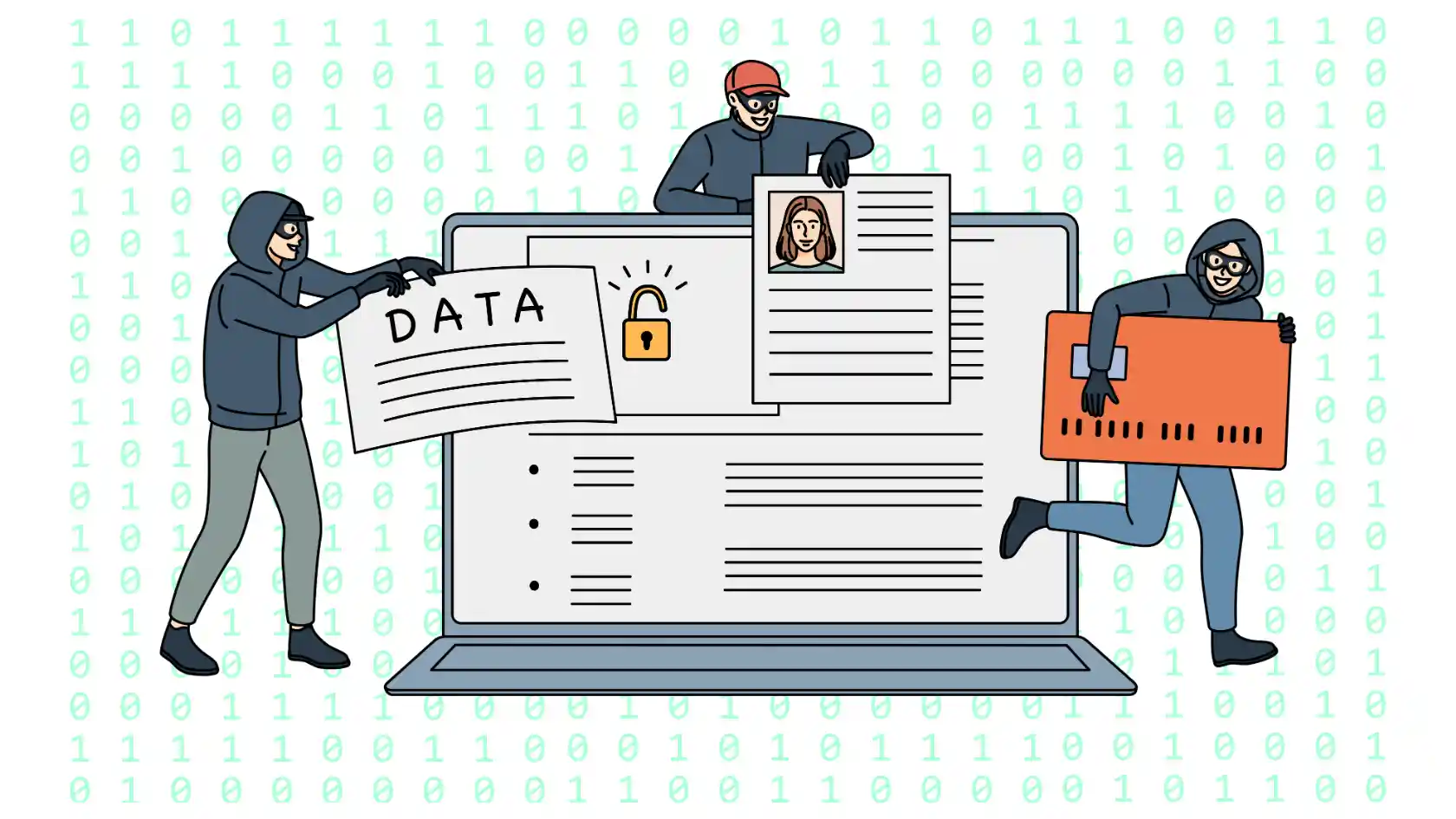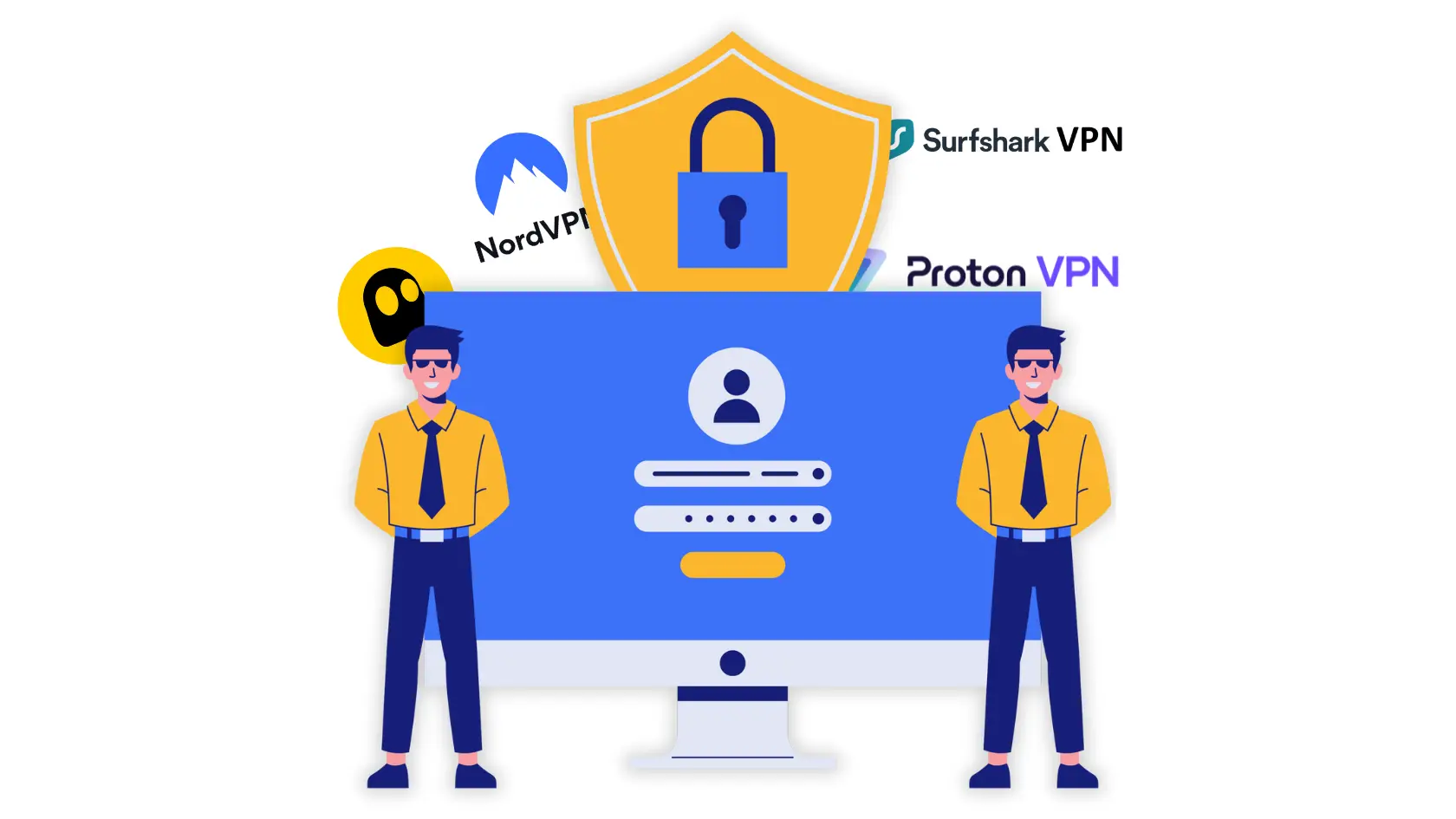For today’s generation, they put their lives in their computers and cellphones, and it seemed like a treasure chest of valuable data. Oh sure, people actually try to steal it as if it were real gold, as though it were buried in some cave some pirate is dying to get a hold of.
That is why these digital pirates are known as hackers. To protect your data from hackers, do not fret though, this month’s hacker is not one out of some movie, you do not need to be a computer whiz to get scammed.
How To Protect Your Data From Hackers

Now let’s consider how to avoid data leaks in some ways that do not require a lot of effort.
Utilize a firewall.
A firewall acts as a barrier that prevents unauthorized access to your computer while allowing legitimate traffic. It is crucial for keeping out hackers and malicious software.
It serves to shut the rogues out, while at the same time allowing the good things in. Almost every running computer, be it Windows or Mac, includes a firewall.
Ensure that yours is on before you go online. This is one of the easiest precautions you can take to make sure that hackers don’t get to your site and a key step in learning how to protect your data from hackers.
Install a digital guard dog (antivirus software)
Antivirus software protects your computer from viruses and malware. It acts like a guard dog, detecting and removing threats to keep your system secure. It detects unpleasant viruses and malware that are likely to affect your system in a negative way.
Which is one of the crucial ways to protect data. Some of the good ones are Bitdefender, Panda Free Antivirus, and Avast. The best part?
A large number of these are actually free! Do not forget that your virtual guard dog needs to perform the scans periodically in order to make your computer as healthy as it can be.
Utilize secret codes (Strong passwords)
Remember your password as you remember your door key is important. You wouldn’t use a weak key that literally anyone could duplicate, would you?
The same also applies to passwords. Make them as long as possible and randomize it with letters, numbers, and symbols.
Create a strong password by using a combination of letters, numbers, and symbols. Make it as long and random as possible.
For example, use a phrase you like and abbreviate it with characters and numbers, such as ‘I love eating pizza on Fridays!’ becoming ‘Ilep0F!’.
That is rather difficult for hackers to guess! Strong passwords are fundamental ways to protect data from unauthorized access.
Update Your Digital House
Likewise, you have leaks to your roof fixed which can be interpreted to mean that you should update your computer and/or apps.
Keeping your software updated is essential because updates often include security patches that fix vulnerabilities. These patches help prevent hackers from exploiting weaknesses in your system.
These updates can clear up security features that the hackers could exploit to enter the PC. One might find it irksome to constantly update, but it is like repairing your digital roof to avoid rain, or avoiding hackers.
Be Careful What You Click
Suppose one morning, you come to find a nicely wrapped gift on your doorstep. Wouldn’t you be cautious when things like this are offered to you?
This is true because receiving emails from unknown senders may be considered completely shuntable. Do not respond to these emails, click on links or open attachments that are included in the emails.
It might be filled with colorful words and promising opportunities, but in fact it might be just a bait put by a hacker.
Backing Up, Also Known as Making Copies of Your Treasure
Even pirates cannot steal the treasure if you have hidden the map far where they cannot find it. Data backing is like having the treasure map copies.
If, anyhow, the hackers get through and tamper with your system, they will not wipe out your system. Available tools for built-in backup can be found on your computer, or you can store your information in the cloud with Google Drive.
To ensure safety, learning how to protect your data by regularly backing it up is essential.
Use two factor Authentication
Two-Factor Authentication (2FA) adds an extra layer of security to your online accounts. After entering your password, you need to provide a code sent to your phone or email.
This makes it much harder for hackers to access your accounts, even if they know your password.
This is because it creates an extra step the moment one logs in, enhancing online data protection. First, you enter the password as any other password and in this case, type in your normal password.
Subsequently, there is a code one has to type in the given field if one is to proceed with the next step. This code normally will be sent to your phone. It might be a code received through a Short Messaging Service or an SMS from an application.
Some locations may use telephone or electronic means of communication, directly calling you or sending an email instead.
Employing 2FA to an account really becomes hard for hackers to penetrate your account. Still even if they guess your password it’s not easy for them to gain access to the mailbox or whatever they intend to get.
They will need the second code from the phone. Ensuring online data protection. Thus, to use 2FA one must enable this option in the corresponding account settings.
It is now present in many sites and applications are available for this option. It also means that once it is on; you will be required to have your phone close when logging into the application.

- Lightning-fast speeds to browse without lag
- Servers in 105+ countries around the globe
- Military-grade security to stay safe online
- Try it risk-free with its money-back guarantee
- Native apps for all major devices
Recommended Cybersecurity Tools

Antivirus Software:
Currently there are several security programs that offer good protection against viruses and malware, including Bitdefender, Norton 360, and Kaspersky Anti-Virus, to help keep your data safe.
Network Monitoring Tools:
Techniques like Splunk and OSSEC are valuable in the monitoring of the activities in the network, searching for unfavorable behavior, which improves the security level.
Web Vulnerability Scanners:
Security management tools such as Burp Suite help in the discovery of the vulnerabilities in web apps whereby the discovered vulnerabilities in the application can be managed and rectified before they are exploited.
Encryption Tools:
Encrypt files and data using VeraCrypt or NordLocker for augmenting security to make the files inaccessible to anyone and keep your data safe.
Password Managers:
There are several tools called Password managers, such as LastPass, or 1Password that will generate good secure passwords for you and then save it for you.
That is why, having applied these best practices and using the tools suggested above, you will be able to increase the level of data protection and minimize the possible threat of hackers’ attacks.
Conclusion
Thus, we need to understand that the protection of the data is not a one-time event. It is more like washing your teeth – or brushing it – something you cannot neglect doing every now and then if you want a healthy mouth and teeth.
In the following steps you described to protect your data from hackers, life becomes much more difficult for all those digital pirates out there: Be safe, and happy with your surfing!






